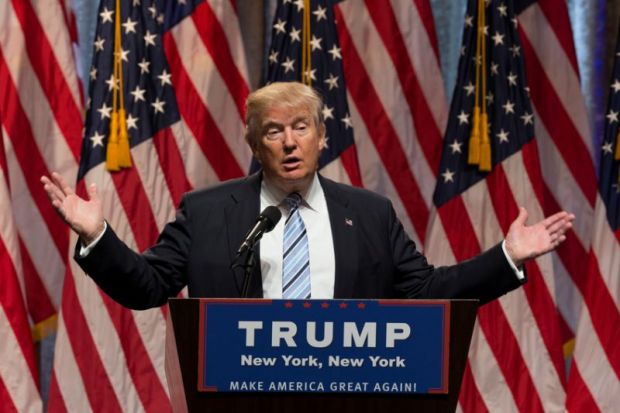Boris Johnson’s premiership has begun at a time when vices of the mind appear to be taking hold of British and American political life at all levels, creating a problem far more acute than a mere difference of convictions.
While Theresa May suggested in her final weeks in office that absolutism poses the greatest danger to our democratic life, it might be more accurate to diagnose these intellectual vices as the most malign influences and potential threats. As set out in a recent book by University of Warwick philosopher Quassim Cassam, Vices of the Mind: From the Intellectual to the Political, such attitudes or thinking styles lead us to acquire, hold and use knowledge in (often deeply) imperfect ways. They lie behind our current tendencies to cling on to proximate answers like a life raft, and to repeat in-group rhetoric at increasingly amplified volumes, leading to polarised politics and straining democratic processes.
Two intellectual vices that stand out in our present political climate are those of arrogance and insouciance. The first of these is straightforward: it is an attitude of superior intellect and unqualified certainty. Identifying intellectual arrogance in others is a dangerous business (far better to root out one’s own arrogant tendencies) but one example might be Richard Dawkins’ over-reaching sense of his own expertise. Terry Eagleton wrote that reading Dawkins’ work on religion was akin to listening to someone hold forth on biology having read only the British Book of Birds. The point about arrogance is not that the views espoused are necessarily wrong, but that they are arrived at, held and used in ways that are more concerned with intellectual dominance than true understanding.
The second public enemy on our shortlist sounds less familiar but is very much in vogue. As defined by Cassam, insouciance is an attitude of indifference to the truth. Donald Trump is a prime culprit. While meeting with Justin Trudeau, Trump insisted that the US had a trade deficit with Canada, well aware that he had no idea whether his claim was true or not. In this instance, Trump wasn’t lying, as Cassam notes: he simply didn’t care about the facts.
Displays of such vices among political leaders are perhaps nothing new, but the extent to which the electorate is willing to propel such characters into the highest offices breaks a long tradition of requiring at least a thin veneer of humility and proper concern for the truth in those who seek to rule.
While it is easy to pin these vices on those we disagree with, research by Duke University suggests that this is not a problem of the Right or the Left. Conservatives and liberals are just as arrogant as each other: the difference is simply that each group is arrogant about different issues.
One of the best solutions is to counter vice with virtue. Cultivating attitudes of open-mindedness and intellectual humility are key to increasing our ability to communicate deep convictions in open and constructive ways, making space for the meaningful dialogue and political compromise that we clearly need. And, as the places in which politicians and civic leaders of all stripes begin to hone their craft, universities may be best placed to begin this work.
Assessing limitations, strengths and weaknesses is, of course, at the heart of the academic project. It is the essence of critical thinking. But the language of vice and virtue allows us to call out the kind of “critical thinking” that is simply a front for bolstering our own views and denigrating our opponents. It also pushes us a step further, moving beyond skills to be applied to the dissertation or essay, and focusing instead on attitudes that will carry students beyond the immediate tasks of the university and into civic life.
This may sound like dangerous moralising territory, but it cannot be right for universities to produce graduates chock full of knowledge without a clear sense of how to exercise the power and privilege that comes along with it. Personal formation can be retrieved as a positive and enriching dimension of higher education. Just as we train doctors in the ethical application of medical knowledge, so we need to train the next generation of thinkers and leaders of all disciplines to acquire, hold and use their knowledge with care. If our diagnosis is correct, our democratic life depends upon it.
Bethan Willis is head of thought leadership at the Oxford Character Project. She is also a non-residential fellow with the University of Connecticut’s Humility and Conviction programme.
Register to continue
Why register?
- Registration is free and only takes a moment
- Once registered, you can read 3 articles a month
- Sign up for our newsletter
Subscribe
Or subscribe for unlimited access to:
- Unlimited access to news, views, insights & reviews
- Digital editions
- Digital access to THE’s university and college rankings analysis
Already registered or a current subscriber? Login







